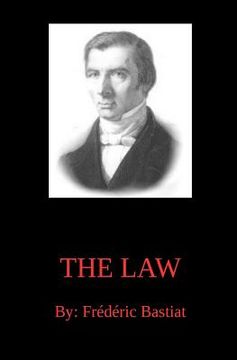Share
The Law (in English)
Frédéric Bastiat
(Author)
·
Fpp Classics
· Paperback
The Law (in English) - Bastiat, Frederic
$ 5.96
$ 7.54
You save: $ 1.58
Choose the list to add your product or create one New List
✓ Product added successfully to the Wishlist.
Go to My WishlistsIt will be shipped from our warehouse between
Monday, May 20 and
Tuesday, May 21.
You will receive it anywhere in United States between 1 and 3 business days after shipment.
Synopsis "The Law (in English)"
The Law was originally published in French in 1850 (this translation to English is from 1874) by Frédéric Bastiat. It was written two years after the third French Revolution of 1848 and a few months before his death of tuberculosis at age 49. The essay was influenced by John Locke's Second Treatise on Government and in turn influenced Henry Hazlitt's Economics in One Lesson. It is the work for which Bastiat is most famous. Bastiat states that "each of us has a natural right - from God - to defend his person, his liberty, and his property." The State is a "substitution of a common force for individual forces" to defend this right. The law becomes perverted when it punishes one's right to self-defense in favor of another's acquired right to plunder. He defines two forms of plunder: "stupid greed and false philanthropy." Stupid greed is "protective tariffs, subsidies, guaranteed profits" and false philanthropy is "guaranteed jobs, relief and welfare schemes, public education, progressive taxation, free credit, and public works." Monopolism and Socialism are legalized plunder which Bastiat emphasizes is legal but not legitimate. Justice has precise limits but philanthropy is limitless and government can grow endlessly when that becomes its function. The resulting statism is "based on this triple hypothesis: the total inertness of mankind, the omnipotence of the law, and the infallibility of the legislator." The relationship between the public and the legislator becomes "like the clay to the potter." Bastiat says, "I do not dispute their right to invent social combinations, to advertise them, to advocate them, and to try them upon themselves, at their own expense and risk. But I do dispute their right to impose these plans upon us by law-by force-and to compel us to pay for them with our taxes."
- 0% (0)
- 0% (0)
- 0% (0)
- 0% (0)
- 0% (0)
All books in our catalog are Original.
The book is written in English.
The binding of this edition is Paperback.
✓ Producto agregado correctamente al carro, Ir a Pagar.

